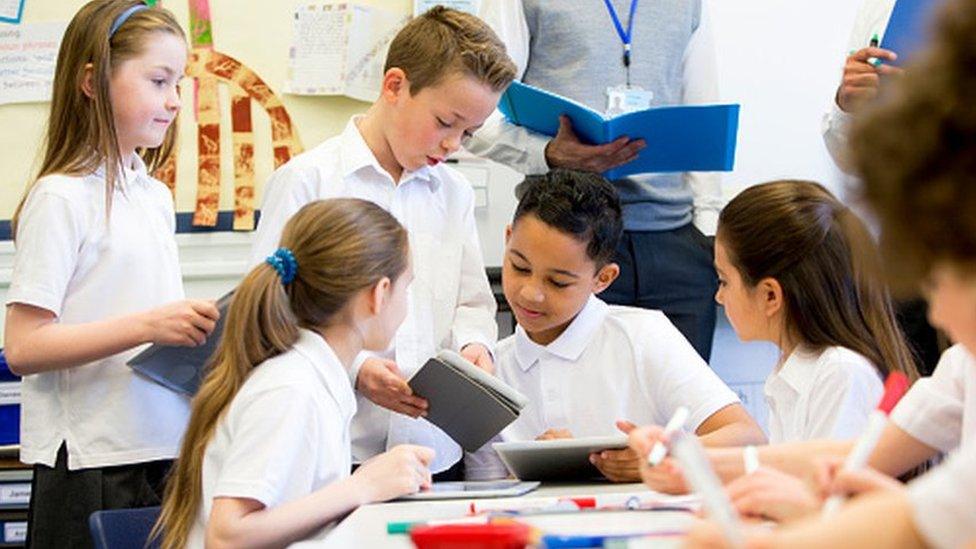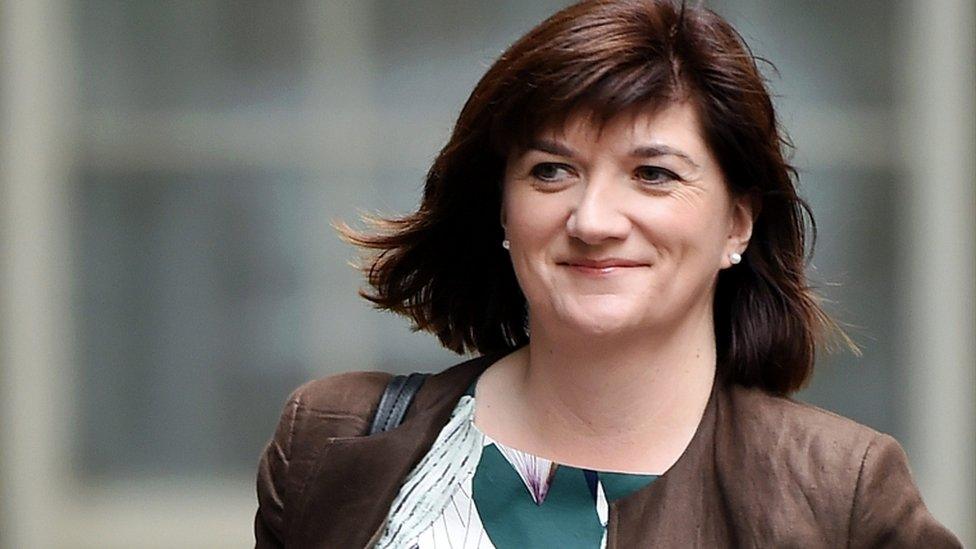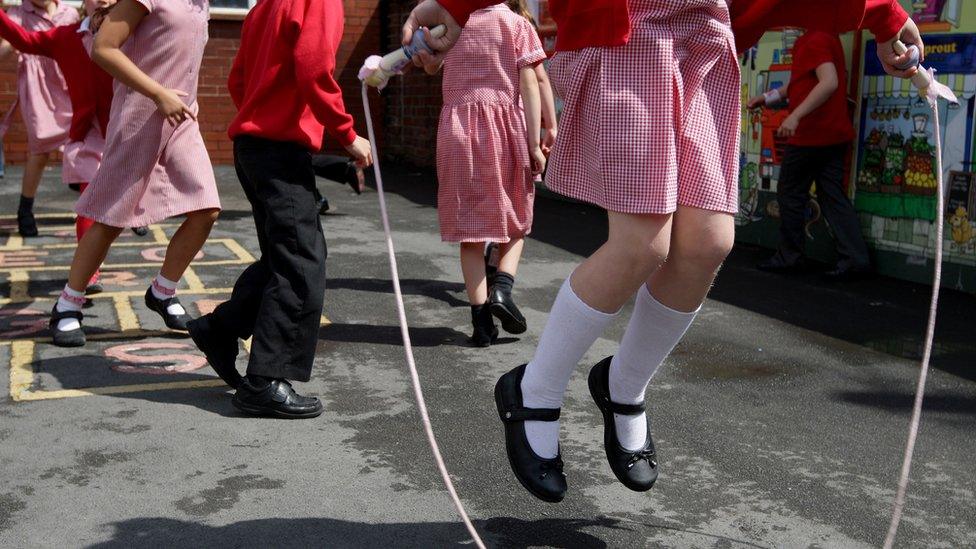Almost half of primary pupils miss new Sats standard
- Published

Almost half of pupils in England have failed to meet a new tough standard in reading, writing and mathematics.
Official data shows just over half (53%) of 11-year-olds made the grade in reading, writing and mathematics.
This means 47% of pupils are considered not to have made the grade in the 3 Rs by the end of their primary years.
Last year 80% met the required standard in reading, writing and maths - but that was under a system which was dropped this year.
Education Secretary Nicky Morgan says lower results should not be interpreted as a decline in performance by pupils.
This year's tests were more demanding and were based on a new curriculum.
Department for Education statistics show:
66% of pupils met the standard in reading
70% in maths
72% in grammar, punctuation and spelling
74% in the teacher-assessed writing
The overall figure of 53% relates to the number of pupils who reached the expected standard in all three subjects.
Previously, attainment at the end of Key Stage 2 was measured in Levels - Level 4c being the expected standard for pupils in their final year of primary school.
However, in the new tests, the expected level is set at 100 but scores can range between 80 and 120 - this means that anything at 100 or over is, in effect, a pass and anything under is a fail.

Analysis: By Sean Coughlan BBC News education correspondent
If this year's primary school Sats tests results were put into a graph showing the results over recent years it would look like there had been a disastrous plunge in standards.
The primary sector has been seen as a success story - and last year 80% of pupils met the required standard in maths, reading and writing.
This year the figure has tumbled down to 53%.
So what calamity has happened?
Education Secretary Nicky Morgan launched a pre-emptive strike the day before the results were published saying such comparisons were meaningless.
The tests have been made tougher and the curriculum has changed.
"They simply cannot be compared directly," said Mrs Morgan, who presumably would be unenthusiastic about being seen as having presided over the biggest ever collapse in results.
And she said it was more honest to accept a dip when the bar was raised, rather than sit back and watch numbers climb like an ever-upward tick.
But teachers' unions were less sympathetic, saying the introduction of the new-style tests had been "shambolic" and heads claimed that the results were so unreliable that they should never even have been published.
Political opponents were even harsher. Lib Dem leader Tim Farron said primary school pupils had been turned into "lab rats in a big ideological experiment".

Russell Hobby, general secretary of the National Association of Head Teachers, said: "We have learned today that only 53% of children have met the new expected standard in reading, writing and maths.
"The government has decided that nearly half of pupils have failed at the end of their primary education. This is not representative of the quality of their education, nor of the hard work that students have put in this year.
"It will be impossible for parents not to compare this year's percentage with last year and not to worry that the new, higher expectations mean that their children appear to have performed worse than children in previous years."
Dr Mary Bousted, general secretary of the Association of Teachers and Lecturers, said: "We are appalled by the shambles of today's Key Stage 2 Sats results which just compounds the total chaos the government has made of this year's Sats.
"Even the government must be worried about the impact of the low scores because it's felt the need to explain the results to schools so they know that all schools will have similarly low results."

Nicky Morgan says tougher primary school tests should not be compared with previous years
Julie McCulloch, from the Association of School and College Leaders, said: "It is essential to understand that the standard pupils are expected to achieve in these tests has been raised significantly from previous years.
"It is therefore meaningless to compare this year's headline results with those from previous years, and these statistics must be handled with extreme caution in terms of trying to reach any judgements."
Ms McCulloch said the Department for Education's introduction of the tests was "rushed and chaotic".
"The children tested this year have only been studying the new curriculum for two years when it is a programme designed to be studied over four years," she added.
Liberal Democrat leader Tim Farron said the Conservatives were "treating students like lab rats in their big ideological experiment".
"These Sats results show starkly that they are gambling the futures of these young people on Michael Gove's misty-eyed world view where every school is a prep or grammar school, students are robotic and teachers skip around teaching past participles and antonyms by rote to seven-year-olds.
"It sounds more like an Enid Blyton book than reality."
This year's tests were not without controversy - a copy of the spelling, punctuation and grammar (Spag) test was published a day before it was due to be taken by 10 and 11-year-olds by what the government described as a "rogue marker".
And the government was forced to scrap a Sats spelling test for half a million children aged six and seven after it emerged that it had been posted with practice materials three months early.
- Published5 July 2016

- Published4 July 2016
